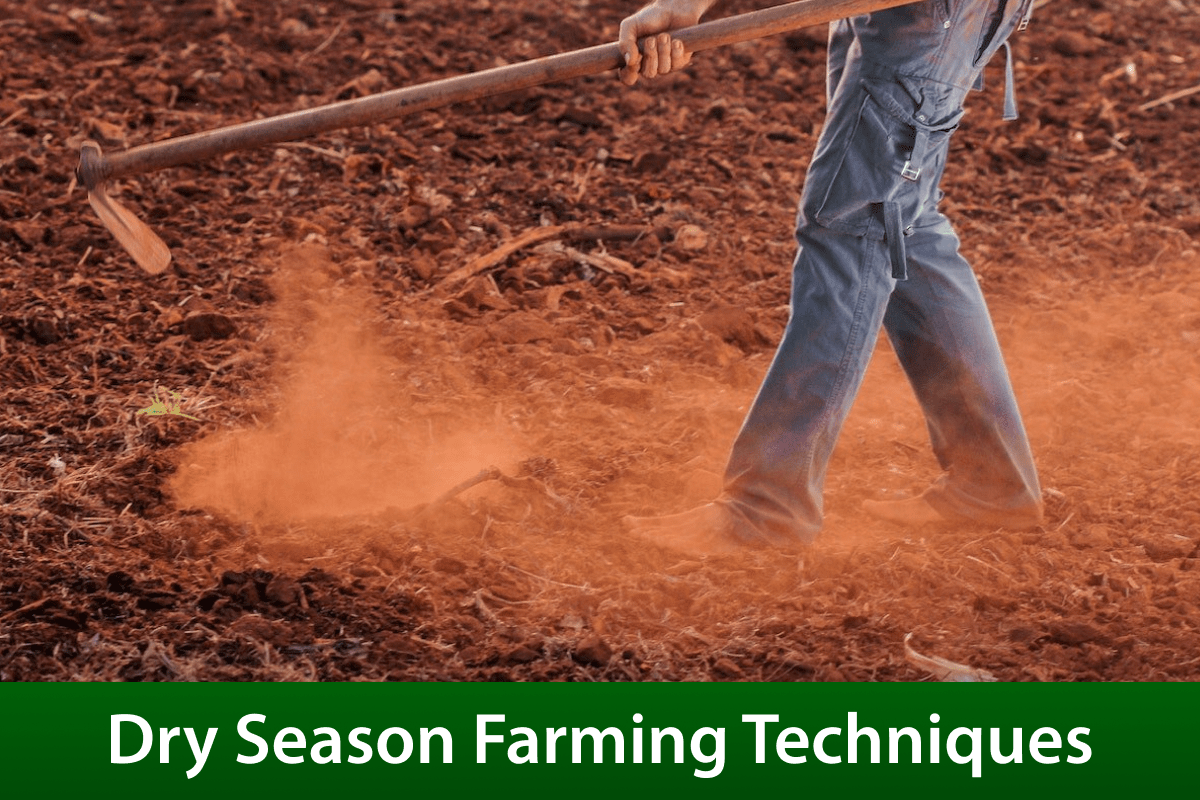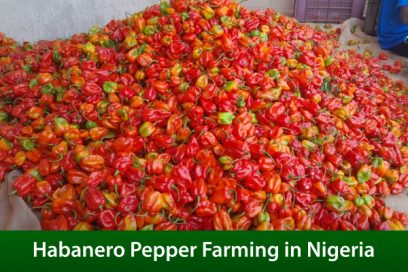- You have no items in your shopping cart
- Subtotal: ₦0
Important dry season farming techniques for vegetable farmers
Dry season farming is an agricultural technique used to help farmers manage the effects of drought, particularly in regions with a long dry season. This technique involves planting drought-resistant crops, such as sorghum, millet, and legumes, as well as utilizing new irrigation techniques, such as drip irrigation and rainwater harvesting.
Other techniques used in dry season farming include mulching the soil, planting cover crops, and using techniques such as crop rotation, intercropping, and contour farming. These techniques help farmers to conserve water, increase crop production and reduce soil erosion, ultimately helping them to better manage the effects of drought.
Why is dry season important for the farmers?
Dry season is important for farmers because it is a period of low rainfall which helps reduce the risk of crop loss due to flooding. It also enables farmers to easily access their fields and cultivate their crops. The dry season also helps farmers with planting and harvesting operations. Furthermore, the dry season allows farmers to apply fertilizers and pesticides which are necessary for the health of their crops. Lastly, the dry season provides a suitable environment for crop rotation, allowing farmers to maximize their land and crop production.
Selected For You;
– 19 Dry Season Farming Crops To Plant
– Dry Season Farming In Nigeria
– Why I Put Aside My Degree For Farming
What are the advantages of dry season farming?
1. Reduced Risk of Crop Loss: The dry season is generally characterized by less rainfall, which helps to reduce the chances of crop failure due to floods or excessive rainfall.
2. Lower Cost of Production: Since there is less water requirement during this period, farmers can reduce the cost of production. This also helps them to save on water, labour and other inputs.
3. Improved Soil Health: With less water, the soil can absorb more nutrients, which helps to improve its health and fertility. This leads to better crop growth and better yields.
4. Reduced Pest and Disease Pressure: The dry season provides an environment that is not favourable for pests and diseases, thereby reducing the chances of crop damage.
5. More Time for Other Activities: The dry season provides farmers with more time to engage in other activities such as livestock rearing, beekeeping and other income generating activities.
ALSO SEE: Rainy Season Farming In Nigeria
Here are some dry season farming techniques for vegetables that can help ensure a successful harvest:
1. Choose drought-resistant vegetable varieties: Selecting vegetable varieties that are well-suited to dry conditions can help ensure that your plants are able to withstand periods of limited rainfall.
2. Plant Early: Planting early in the season gives your vegetables a head start. Plant crops such as tomatoes, peppers, squash, and cucumbers as soon as the soil can be worked in the spring.
3. Practice efficient watering: Watering vegetables during the dry season should be done carefully and efficiently. This may involve using drip irrigation or other targeted watering methods to provide water directly to the roots of the plants, rather than watering the whole field.
4. Plant Windbreaks: Planting trees or tall shrubs around your vegetable garden can help protect them from wind damage, which can cause wilting and drying out.
5. Water at the Right Time: Water your vegetables in the morning, when temperatures are cooler and there is less risk of evaporation.
6. Use mulch: Mulch can help retain moisture in the soil, reducing the need for frequent watering. It can also help control weeds, which can compete with your vegetables for water and nutrients.
7. Cover Crops: Planting cover crops between rows of vegetables can help to keep moisture in the soil, reduce erosion, and reduce weed growth.
8. Plant during the rainy season: If possible, try to plant your vegetables during the rainy season, when there is more natural moisture available. This can give the plants a better chance of establishing strong root systems and becoming well-established before the dry season sets in.
9. Protect your plants: In some cases, drought-stressed plants may be more vulnerable to pests and diseases. Protect your plants by monitoring them regularly and taking appropriate action if you notice any signs of problems.
Overall, dry season farming techniques can be an effective and efficient way to increase agricultural productivity. These techniques can help farmers maximize their yields during the dry season and reduce their reliance on weather-dependent rainfall. With proper implementation, dry season farming techniques can help farmers achieve food security and improve their livelihood.



